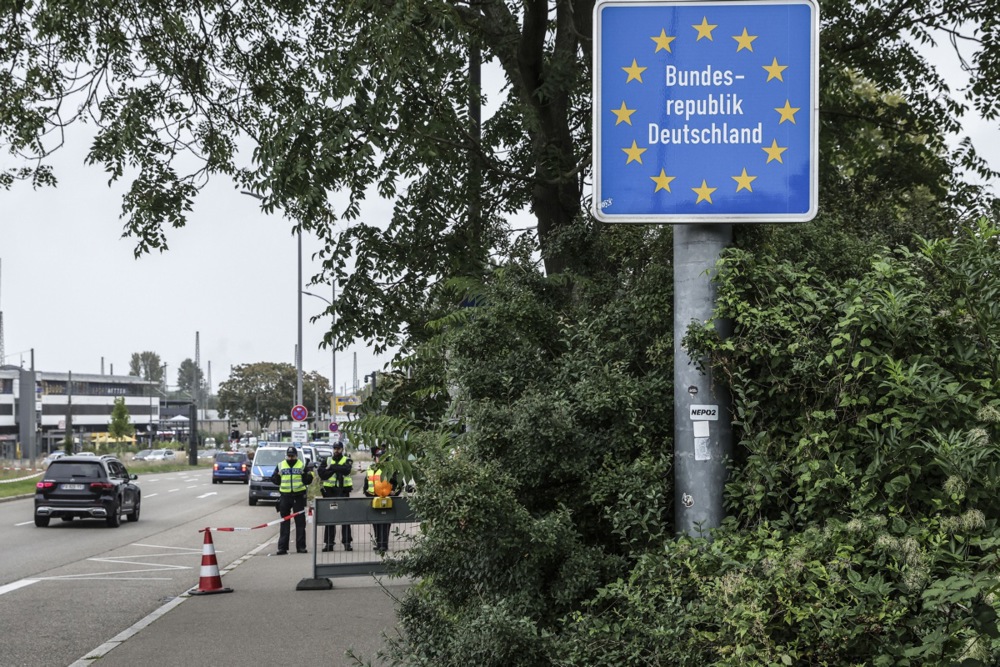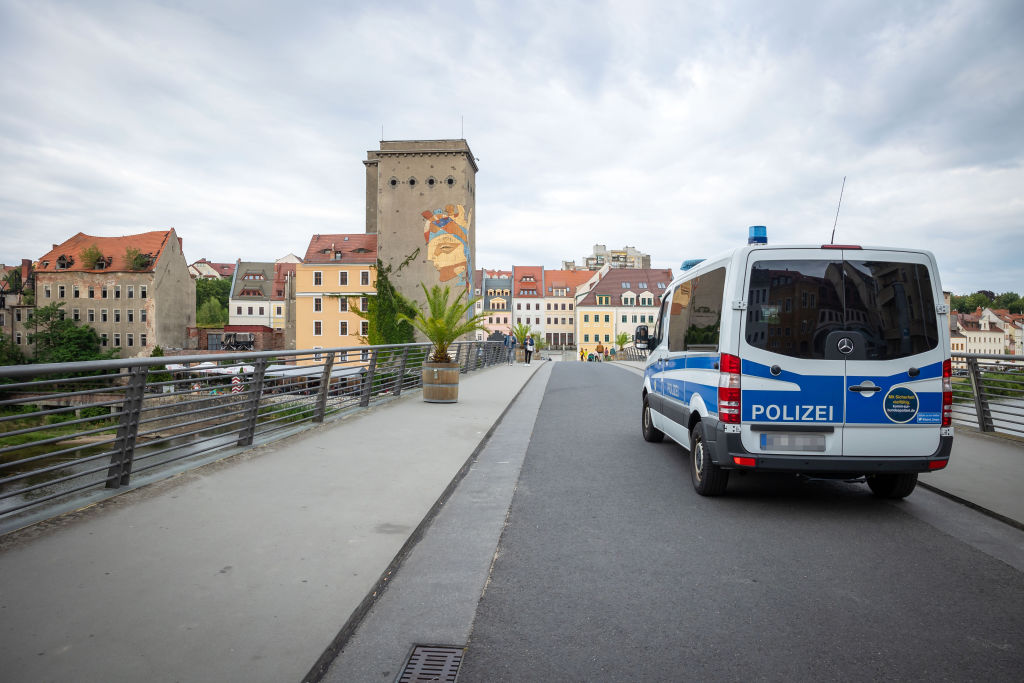Schengen is designed to be a passport-free travel area but Belgium, home to the European Union, has now found itself boxed in.
On the one hand, the 29-country Schengen Area is set expand with Romania and Bulgaria, which partially joined in late March, now looking for full membership.
On the other, the migration crisis has caused several member countries to reinstate their border controls.
France, the Netherlands and Germany have all acted regarding border checks, leaving Belgium – and Brussels, the EU capital – surrounded by nations without open borders.
France said it planned to have border controls in place again by November 1, citing fears of terrorist attacks and a desire to stop undocumented migrants trying to cross the Channel to the UK.
Germany has already expanded its border controls in the fight against illegal migration following the fatal Solingen knife attack in August.
The Dutch Government, under pressure from Geert Wilders and his Freedom Party (PVV), has brought in what it called the “toughest policies on migration ever”, including border checks.
On October 29, Ghent University professor Hendrik Vos downplayed the situation in Belgian newspaper Het Nieuwsblad.
“It’s impossible to hermetically seal off a country 24/7,” he asserted.
“France alone has thousands of kilometres of borders – try making those completely secure. Systematically checking every car or truck is impossible and certainly unaffordable.
“It’s not happening now at the German border, it won’t happen at the French border and neither at the Dutch border. Occasional random checks, especially in the first days, yes. And then, as a motorist, you risk having to wait longer in line, with the inevitable loss of time as a result.”
As the Schengen agreement provides for temporary controls if undertaken with a clear reason and within a defined period, Vos said he did not think it was under threat but questioned current border situations.
“Two gendarmes on the E17 at the border crossing in [the town of] Rekkem really won’t stop illegal migration,” he said.
“This is pure symbolic politics under pressure from a part of the population, pressure that is being fuelled from the radical Right.”
Isabelle De Maegt, spokeswoman for the Belgian transport federation Febetra, said she feared border controls would lead to long queues and tailbacks and would be costly.
Febetra chief Philippe Degraef told Het Nieuwsblad: “The purpose of the European Union was precisely that there would be no internal borders. This is a step back in time.
“The political muscle-flexing that more and more countries are showing has far-reaching consequences for the logistics sector.
“The extra queues and delays not only disrupt transport planning and proper compliance with driving and rest times, they also increase costs: An hour in traffic costs the carrier about €100.”
Similar arguments were made by Romania’s National Union of Road Transporters earlier in October. It called for “urgent measures” to enable it to quickly gain full Schengen integration, decrying a delay it said was causing huge financial losses caused by transport hold-ups.
“Romanian haulers have lost billions of euros every year, just because of long waiting times at borders,” its secretary-general Radu Dinescu said.
According to the transport union, lorry drivers usually wait eight to 16 hours at the border with Hungary and from 20 to 30 hours at the Bulgarian border, with peaks of 72 hours.
Romania’s Government has said it wanted the country to join Schengen in full by the end of 2024.
On October 29, Poland’s foreign minister Radoslaw Sikorski said the EU’s external borders must be effectively controlled if the Schengen Area was to be maintained.
During a visit to the Netherlands, he said different European countries were experimenting with various solutions to preserve the Schengen zone.
Poland launched a new migration strategy on October 15, including the suspension of migrant asylum applications and the controversial use of migrant “pushbacks”.
Extreme violence connected to organised crime is reaching new heights in the German city of Cologne. According to police, this is in large part due to the so-called “Mocro Mafia”. https://t.co/EOv2SztfEo
— Brussels Signal (@brusselssignal) July 10, 2024





